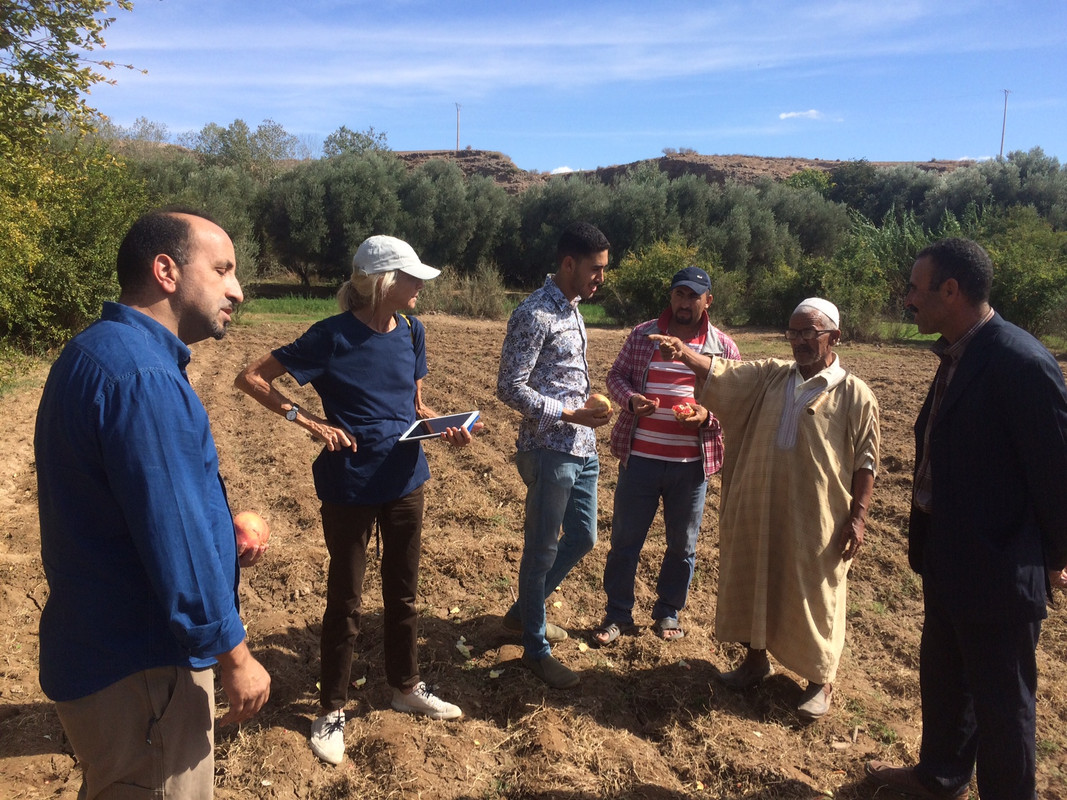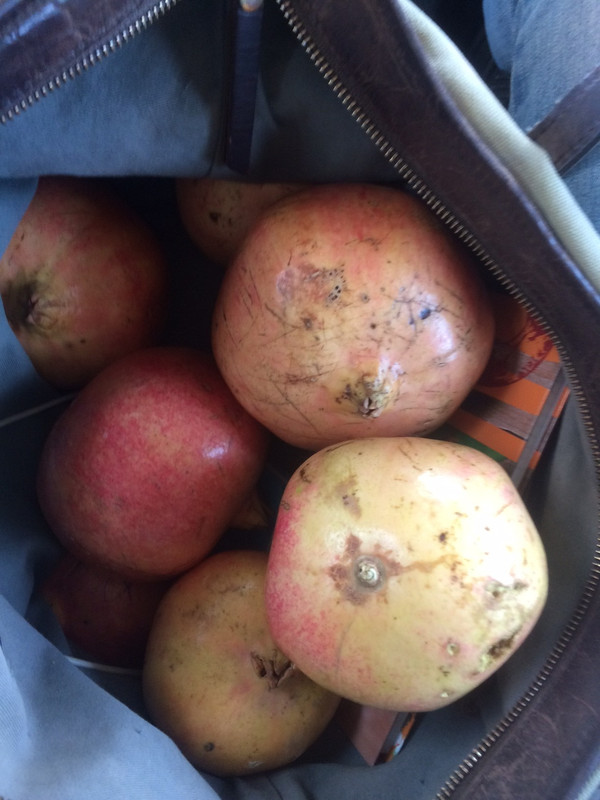By Nora Martetschläger
HAF Intern
My last days were all about Pomegranates. I visited Pomegranate farms, ate them fresh from the tree, had some delicious pomegranate juice and learned a lot about the pomegranate business.
The reason for all this were two trips to Lalla Takerkoust on 29th and 30th of October together with my colleagues Hassan and Anne Marie, an agriculture-economist from the US. There we visited some local farmers in order to discuss further support. Hassan is coordinating the USAID farmer-to-farmer project for HAF and Anne Marie is one of the volunteer experts who participate in the program. The idea is to find out what local farmers need to improve their business and then help them to achieve the goals they desire with the recommendations of Anne Marie.

In Lalla Takerkoust at the moment the first priority for most of the farmers is to form a cooperative to achieve better prices for their pomegranates on the market. Now they sell only raw fruits for 5 DH (~ 0.50€) per kilo or 50 DH per 12kg-case (18-20 pomegranates). Selling also processed products as well as being able to negotiate better prices with the buyers would enable them to generate much better revenue. Forming a cooperative would help them to be in a much better position in the marketplace as they could work together to sell their fruit.
The farmers told us that they had been discussing the subject for some years already but somehow weren’t able to come to an agreement and get started. In 2016 they had an important meeting with the agriculture ministry about developing and preserving pomegranate farming in the region. The ministry already started to plant a lot of trees and agreed on a project for a large cooling unit, so the farmers could store more pomegranates which helps them to negotiate a better price. But the cooling unit still is not built.

This seems to be a divisive issue, as some of them want to wait until they get the cooling unit to form a cooperative. Others believe that they could already start now, a view Ann-Marie shares. She is certain that the farmers will have more power to assert their demands if they act as a unit. So, the easiest way of getting the ball rolling is simply to start. After a while a date for an initial meeting of the associations has been set. It will take place on 17th of November in order to discuss the next steps and get the process of forming a cooperative started. In the future they will need legal and financial advice as well as mechanisms to control financing and ensure quality. Anne Marie’s next steps will be to identify the support the farmers might need in the future and propose possible solutions.

The associations’ members are confident that the collaboration with HAF will help them to gain more motivation and work together.
For me personally it was a great field visit as I came home with a bag full of pomegranates and a lot of learning.
